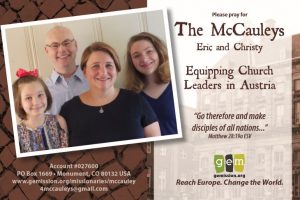Does it make sense to train future church workers in a formal setting when they will be called upon do almost of their ministry in non-formal settings? This is an important question to consider because people tend to teach in the same ways they were taught. If someone learns theology by listening to a professor or reading a book they are more inclined to teach a Sunday school class or a Bible study in the same way. Okay it won’t be exactly like a classroom setting but most people will try to stick with it as close as they can.
For years there have been different pushes to reform theological education as we know it .[1] I think those who want a reform bring up some good points. There are definitely areas that need to be thought through. In this post, I am not calling for a complete reform. I would, however, like to raise the awareness of the way teaching is done. I believe this can help as curriculum and lesson planning decisions are made on the part of the school. I believe it can also help people who are already ministering inform their methodology of teaching.
In this post, we will look at characteristics of informal, non-formal and formal education.[2] We will see how characteristics of non-formal education are in almost every area of church life. At the end, I will propose some suggestions for higher theological education institutions, teachers, students, pastors and church workers and people in the church to maximize non-formal education for church ministry.
Informal, non-formal and formal education: an overview
Most people have heard of formal and informal education. Formal education usually has a fixed curriculum, the focus is academic and content is teacher-centered. Informal education, sometimes called “life-long learning”, has no intentional structure but lessons are taught or rather “caught” and learned as daily life situations occur. There is a third type of education that comes in between the formal and informal which is called non-formal.
 Non-formal programs have been around for a long time. The Boy Scout of America’s merit badge system is a great example.[3] To receive a merit badge, a Boy Scout must fulfill all the requirements the merit badge book requires. Each task is signed off by someone who has seen them complete the requirement. When all the requirements are fulfilled, the Boy Scout receives a merit badge and can display it for others to see. Outside the Boy Scouts, the merit badges are meaningless for an educational institution. They cannot transfer a set of merit badges to receive more credits. However a lot of learning has taken place and there is recognition within the Boy Scouts troop.
Non-formal programs have been around for a long time. The Boy Scout of America’s merit badge system is a great example.[3] To receive a merit badge, a Boy Scout must fulfill all the requirements the merit badge book requires. Each task is signed off by someone who has seen them complete the requirement. When all the requirements are fulfilled, the Boy Scout receives a merit badge and can display it for others to see. Outside the Boy Scouts, the merit badges are meaningless for an educational institution. They cannot transfer a set of merit badges to receive more credits. However a lot of learning has taken place and there is recognition within the Boy Scouts troop.
More recently there have been some who would like to introduce a badge system possibly in education.[4] Some colleges are recognizing prior learning or learning that was done informally or non-formally by giving students credits for what they know.[5] The European Union even has guidelines for validation or accrediting non-formal and informal learning[6].
Characteristics of Non-formal Education
Much of what happens within the church context is non-formal education. Non-formal education has some unique characteristics that can be easily seen within the context of church.
Since non-formal education is in middle of the education continuum, between informal and formal education, it is difficult to find a definition that everyone agrees on. There are characteristics which are evident in most definitions. For example, there is a structured curriculum and even possibly a syllabus but completion of these are not usually recognized by a school or college. The learning takes place at a certain location with a facilitator, trainer, teacher or mentor type person. The curriculum is centered on what the learner needs to learn. Attendance is not mandatory.
Being aware of and understanding more of what non-formal learning is can help in the educational process within the church. When people come and volunteer they are doing so mainly from intrinsic motivation. Intrinsic motivation creates a high level of openness for learning and growing. They are there because they want to be there. Since they are not being paid to be there, nor are they getting a degree or certificate that can make them “more marketable” this can bring a greater level of participation and willingness on their part. Granted, this does not address what their motives for being there are but the fact that they are there says something.
One of the main goals of Christian education is maturity in Christ. While both informal and formal education aspects can and do aid in the maturing process, non-formal characteristics are the most optimal for the maturing process to occur. Knowledge is important to have but living the Christian life is more than knowing about God and His desires. It is about living transformed lives based off this knowledge. (Rom 12:1-2) Non-formal education allows for information to be shared and encourages participation. Involving the learner actively strengthens long term learning. Not only that, but it also makes the learning theirs, not just something a teacher said which is what is needed for the maturing process.
Suggestions for Implementation
For theological schools– Recognize that a large portion of ministry is set in a non-formal context. Model how non-formal education can be done. Show the strong connection between life transformation and engagement or participation and how non-formal education can be a great tool.
For teachers in theological schools – Point out how their particular subject can be implemented in a non-formal context. Where appropriate, have students put together a plan to teach the material covered in class covering in a non-formal way. For example, a school assignment can be to plan a weekend retreat, a seminar, a Bible study, small group series or a discipleship guide.
For students in theological schools – where appropriate, ask your teacher if instead of writing a research paper that you could substitute writing either a set of Bible studies, small group studies or a discipleship plan that displays the same content but in a different form.
For pastors– educate yourself on non-formal education principles and talk about them with some people in your church on how to better put some of these principles into practice. Pick one area or one group to try a few different methods out.
There are many ways to utilize non-formal education through Sunday schools, small groups, discipleship relationships, retreats and the like. I work with Biblische Ausbildung am Ort, an Austrian church-based training organization that capitalizes on non-formal education in the church. Other English speaking organizations that have extensive experience in non-formal education are: The Centers for Church Based Training, BUILD or Living Stones.
What do you think:
- What are some other ideas for using non-formal education in the church?
- Have you seen any good ways of non-formal teaching that helps people become mature believers?
[1] A few starting recommendations are from Edward Farley’s Theologia, David H. Kelsey’s Between Athens and Berlin and Robert J. Banks’ Reenvisionsing Theological Education..
[2] I recommend a couple of articles over at infoed.org that provide some more information especially non-formal and informal education. http://www.infed.org/archives/e-texts/colley_informal_learning.htm and http://www.infed.org/biblio/non_formal_paradigm.htm accessed January 20th 2012.
[3] http://www.scouting.org/scoutsource/BoyScouts/AdvancementandAwards/MeritBadges.aspx accessed January 23rd 2012.
[4]http://www.macfound.org/site/c.lkLXJ8MQKrH/b.4196225/apps/s/content.asp?ct=11221065 accessed January 23rd 2012.
[5] http://chronicle.com/article/Where-Life-Earns-Credit-/64618/ accessed January 23rd 2012.
[6] http://www.cedefop.europa.eu/EN/publications/5059.aspx accessed January 23rd 2012.





